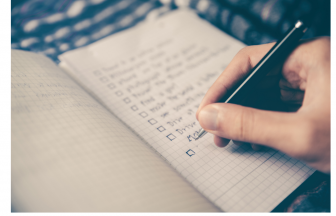Communication is really important no matter who you are what role you are and what type of person you are, Communication is needed in order to have good relationships with people around you such as family, friends, business partners, etc.
Here are some tips to improve communication to reduce misunderstanding and positive interactions with others:
1. Think Before You Speak
Saying the wrong thing can seriously injure a person, even at the right moment. For instance, think of a doctor misspelling a prescription order that turns out to be incorrect and damages her patient. In a court of law, saying the wrong thing could bring an innocent individual to prison for a long, long time. Given that words have such strength, how we communicate is very critical. Take time to listen, therefore, be careful how you respond, and take time before speaking.
2. Speak To Help The Listeners
Communicate with the aim of assisting the audience. There are plenty of reasons why people talk. Often, as sometimes happens with small talk, it is just to test the relationship. There are those who think out loud, but you only happen to be present as a listener as they try to process their ideas. Other times, whatever the reason, it’s to present knowledge. The speaker also communicates the need for a response or assistance on other occasions.
3. Speak With Straightforwardness
By not being responsive and frank, we also prefer to play games with humans. For those who have learned to be passive-aggressive, this is a technique. The individuals we admire the most, though, are those who are genuine and truthful. Many who can talk with candor are men or women known to be leaders, or have charm, or are given great respect.
4. Becareful To Use The Right Words at The Right Time
Understanding that words have power is very important. Going over what you want to say is a good habit to get into, to make sure that’s exactly what you want to say. The level of verbal accuracy is dependent on the degree of significance at the moment. Obviously, when ordering an attack on the enemy, a major in the military would need to talk with precision; whereas when playing tag with your daughter, there is hardly a need for verbal precision. At the same time, saying the right thing can harm the situation or the relationship at the wrong time.
5. Make Good Use of Questions
The individual who poses the questions is also the individual in charge of the conversation. Control is not always the target, however. Instead, using good questions can get to the heart of the problem and help to involve people in the discussion and communication process. Ask by using the “who-what-when-where-how” and occasionally “why” questions before there is clarity.
6. Get Rid of Distractions
Be deliberate about putting stuff away that can rob your discussion of the amount of meaning it deserves. Ways to do this are to turn your mobile phone off, close your tablet or device, take the earpiece(s) off your head. Not only can you not give priority to the dialogue with other items competing for the attention of your mind, these distractions actually show others that they are not sufficiently relevant to have a productive discussion.
7. Get Help When you Think It is Difficult to Communicate
If you have persistent trouble communicating with another person, then enlist the assistance of one or two others to help enhance communication. This can also overcome the dilemma of constantly competing individuals. Be mindful that it doesn’t necessarily mean that a settlement will occur.
 Login as
Login as












